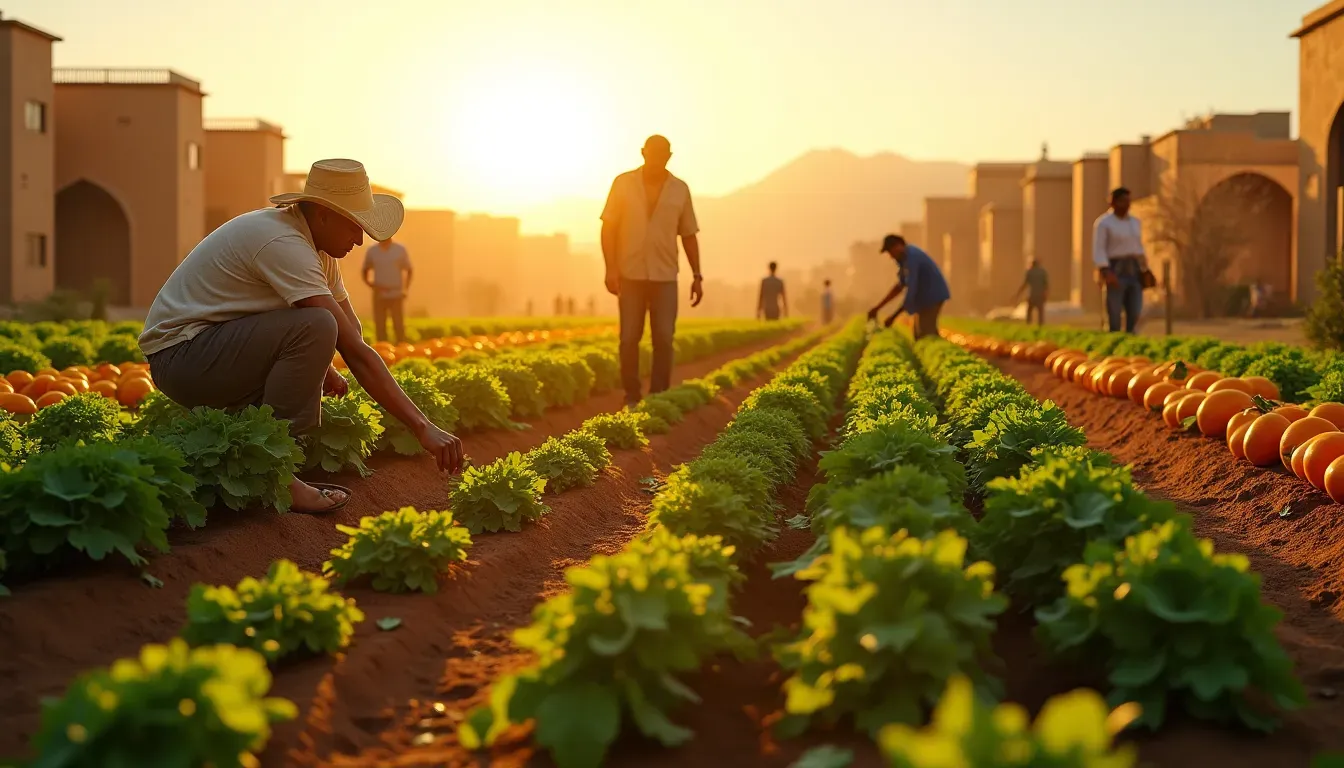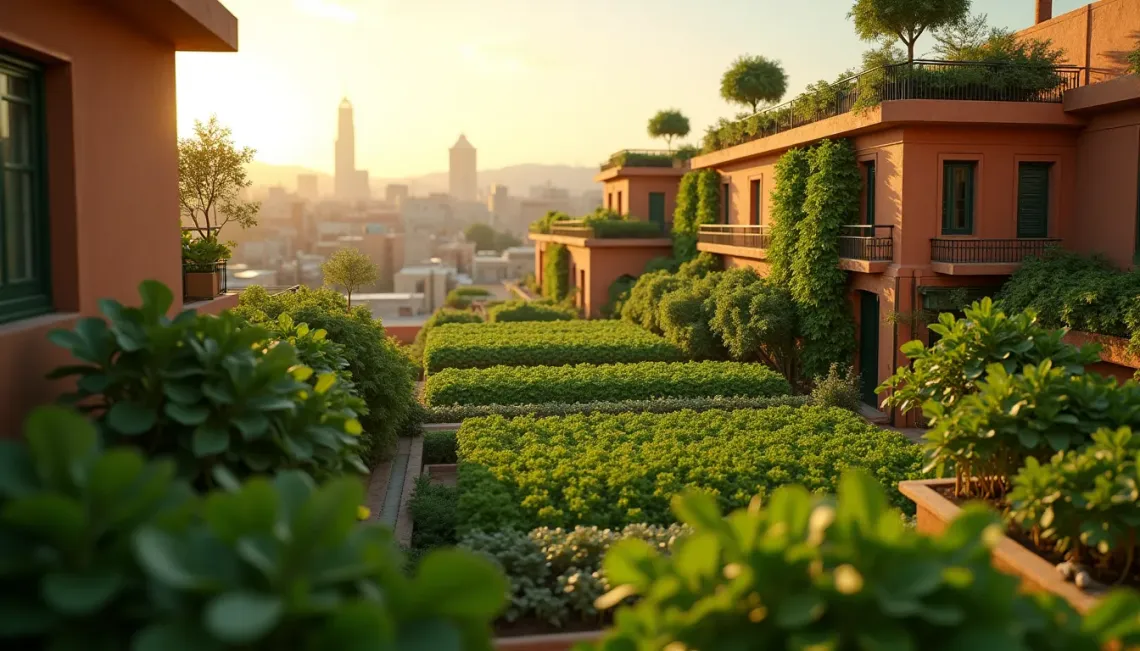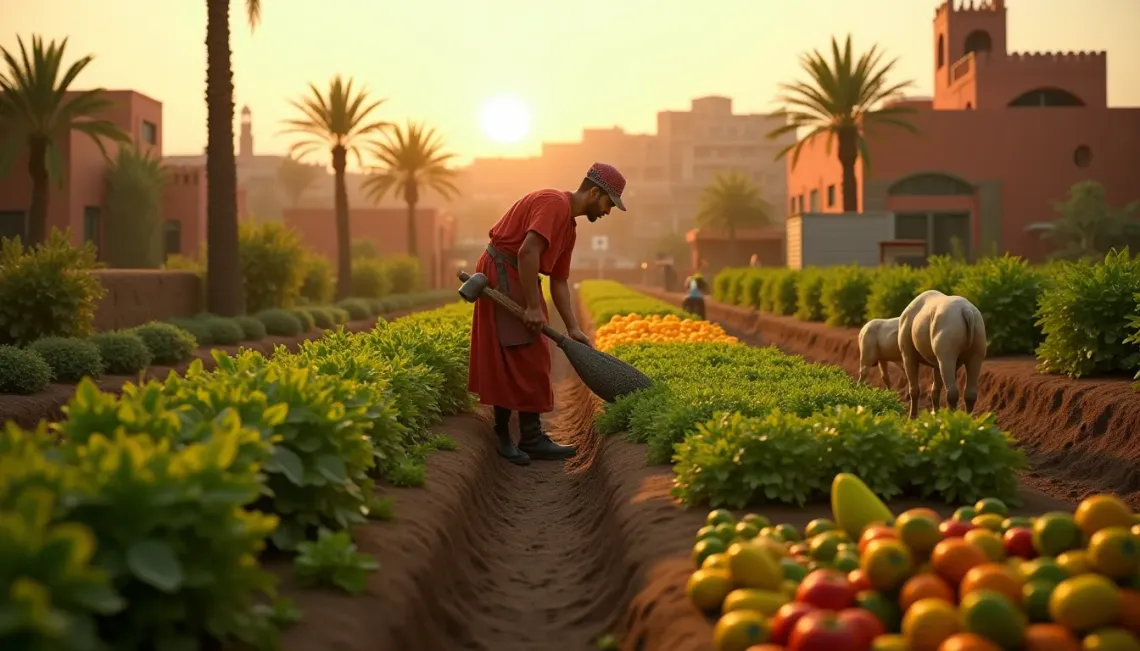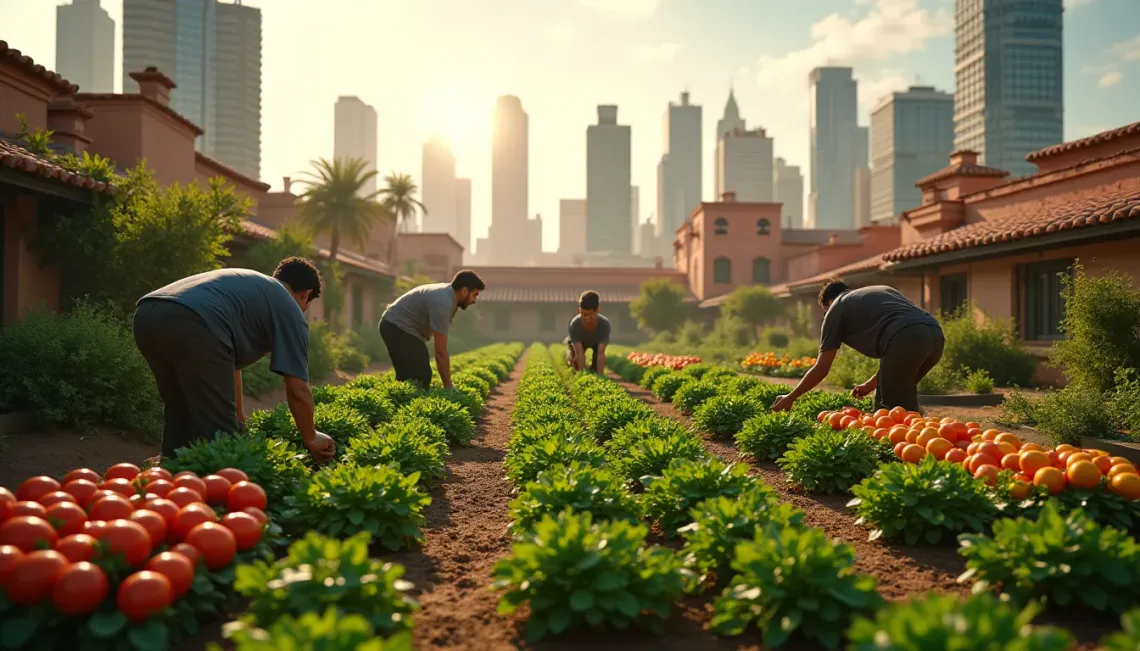Urban farming has emerged as a transformative solution in addressing the pressing issue of food deserts in Morocco. As cities continue to expand, many urban areas in Morocco struggle with limited access to fresh, healthy produce. This urban farming initiative not only promises a steady supply of nutrition but also brings to light a new era of sustainable agriculture.
Understanding Food Deserts in Morocco
Food deserts are urban areas where access to affordable and nutritious food is limited or nonexistent. In Morocco, rapid urbanization has led to the development of these areas, especially impacting the low-income neighborhoods. Residents often rely on convenience stores with processed foods, leading to health issues such as obesity and malnutrition.
The Rise of Urban Farming
In response to this crisis, urban farming has gained momentum in Moroccan cities. By converting rooftops, vacant lots, and urban spaces into thriving gardens, communities are breaking down the barriers of food scarcity. Such initiatives encourage the use of local resources and innovative farming techniques, making it possible to grow fruits and vegetables within city limits.
Sustainable Agriculture: A Pathway to Change
Urban farming thrives on the principles of sustainable agriculture, which emphasizes environmental health, economic profitability, and social equity. The practices involved in urban farming:
- Promote the use of organic farming methods to reduce pesticide use.
- Encourage crop rotation and polyculture to enhance biodiversity.
- Utilize rainwater harvesting and composting to minimize waste.
Such sustainable agriculture practices ensure that urban farming in Morocco is not just a short-term fix but a long-lasting solution to food deserts.
The Role of Community Gardens
Community gardens play a pivotal role in the urban farming movement in Morocco. These gardens serve as the backbone for community involvement and education. They offer:
- Hands-on learning experiences for all ages about growing food.
- A chance for residents to collaborate, fostering a sense of community.
- Opportunities to exchange produce, enhancing food security.
Community gardens have transformed neighborhoods, promoting healthier lifestyles and providing a model for sustainable urban living.
Challenges and the Way Forward
Despite its potential, urban farming in Morocco faces challenges such as limited land availability, funding constraints, and the need for knowledge sharing. Overcoming these hurdles requires support from both government and non-governmental organizations. Potential solutions include:
- Creating policies that favor urban planning with integration of green spaces.
- Providing financial incentives and subsidies for urban farming projects.
- Establishing educational programs to equip residents with the necessary skills.
Related Topics
For more insights into sustainable living, explore articles on sustainable cities and permaculture principles.
In conclusion, urban farming stands as a beacon of hope in tackling Morocco's food deserts. By embracing sustainable agriculture and nurturing community gardens, cities can ensure a healthy and self-sufficient future. As Morocco continues to explore urban farming, it sets an example for other regions facing similar food accessibility challenges.




